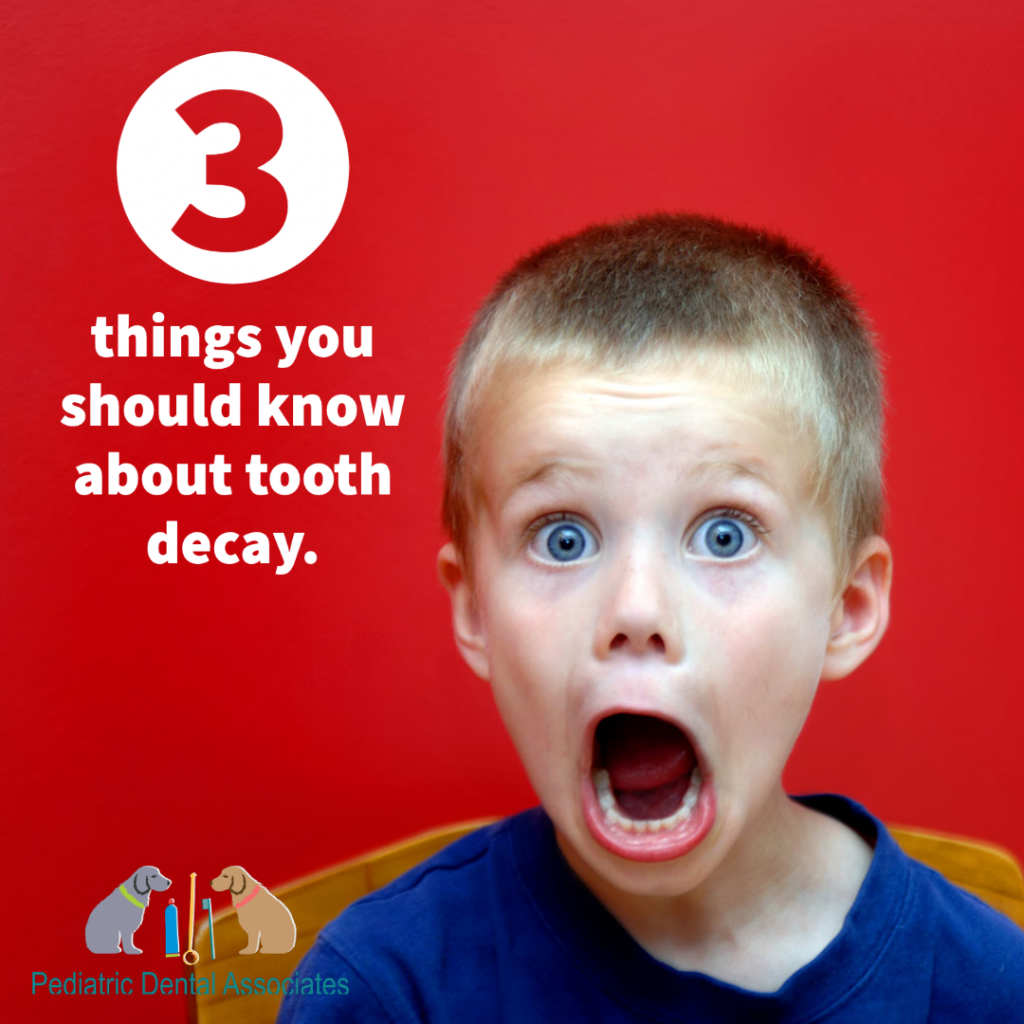Raising healthy kids can be exhausting. Between the demands of work, school, extracurricular activities and weekend plans, dental care sometimes gets neglected. In a rush to get out the door in the morning, kids forget to brush their teeth. Or you’re so anxious for them to go to bed that you let them skip brushing at night. Not only does this establish a pattern of poor oral hygiene habits, but over time these missed opportunities to brush add up to tooth decay.
What is Tooth Decay?
Teeth are covered in a hard surface known as enamel. Enamel is what protects the inside of your teeth from every day use as you chew, bite or talk. Bacteria that normally lives in the mouth feed on the food you eat, turning it into acid. This acid breaks down the enamel, causing tooth decay, or cavities.
Three Things You Should Know About Tooth Decay
Tooth decay is the second most common disease in the United States.
According to the Centers for Disease Control and Prevention, 20% of U.S. children ages 5 to 11, and 13% of kids age 12-19, have some form of tooth decay. What’s even more alarming is those numbers jump to 26% once they hit adulthood. Only the common cold is more prevalent.
If left untreated, tooth decay can cause pain, developmental issues, chronic disease and even death.
Tooth decay is an infection. Any infection left untreated can spread – to other teeth, to the gums, and eventually to other parts of the body. As the enamel is worn away, nerves in the teeth are exposed, causing pain. As the disease progresses, gums become tender and swollen, sores can develop, the jaw can become damaged and teeth will become loose or fall out. Missing teeth affect a person’s ability to chew, swallow and talk. Over time, gum disease can cause other chronic conditions such as diabetes, heart disease, stroke. In rare cases, the infection can spread to the sinuses and into the brain, causing death.
Tooth decay is 100% preventable.
Helping your child make good decisions about nutrition and oral hygiene will prevent tooth decay from forming. Encourage them to make healthy food choices and limit their intake of foods and drinks that are high in sugars and starches. Brushing twice a day with a fluoride toothpaste removes acid-causing bacteria from the mouth and strengthens teeth, while flossing once a day removes any food caught between the teeth.
Brushing and flossing at home is important. But it’s equally important to bring your child in every six months for a dental cleaning and exam. Even if your child becomes diligent at brushing and flossing, it is still easy to miss nooks and crannies. Your best bet? See a pediatric dentist for a twice yearly dental cleaning to ensure no tooth decay is lurking around in your child’s mouth. If there is a cavity, the earlier it is caught, the easier it is to treat.
Pediatric Dental Associates of Alabama is a pediatric dentist practice with offices in Hoover, Birmingham, Cullman, Oxford, and Pell City, Alabama. Our staff is uniquely trained and highly skilled, and we strive to provide unparalleled service to each patient. Our staff consists of team members with specialized training and certifications, and years of experience in treating patients with the highest level of care. We strive to stay abreast of the very latest in technology and advances by regularly attending continuing education courses and seminars.
To experience the difference and “why us“, schedule your appointment with our child’s dental office today!

